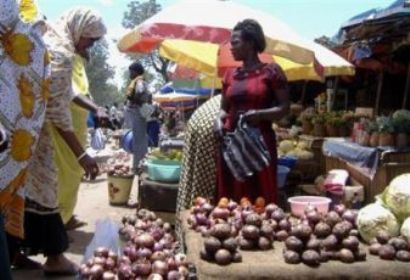South Sudan says peace implementation will reddress economy
November 8, 2015 (JUBA) – South Sudan’s government has admitted that implementing peace would address economic challenges it has been facing since the eruption of conflict in December 2013.

The clashes have ostensibly reduced the production of oil which is the main source of national revenue. Also, the fall of oil prices in the international markets accelerated the collapse of local currency and surge in inflation.
Recently the UN reported that over half of the country’s 12 million people needs assistance and some areas on the brink of famine.
“We are a new and young country facing a number of challenges. The most destructive of these challenges is this war. Our agricultural and energy sectors remain key assets but they have been the greatest casualties of the war. The government is seeking to increase foreign investment in agriculture and in oil fields if the current peace is implemented”, said deputy finance Minister Mary Jervas Yak.
Yak further described current efforts to control markets as attempts treating only the symptoms of the disease and not the disease itself.
“The government is doing what it can but these are just efforts which cannot be considered to constitute permanent solutions to economic challenges brought by the war. The only way to fix most of these problems is to implement the agreement which the government has started to do. A political will is very important”, the minister said when reached by the Sudan Tribune on Sunday to comment on government plans to address the situation.
Meanwhile information minister Michael Makuei on Friday announced that the government had approved 10 million dollars for two national banks to import basic commodities.
“The economic crisis committee has already allocated 10 million dollars to Alpha Bank and Ivory Bank for the purchase of food items that will be arriving in Juba,” ” Makuei told reporters after participating at weekly cabinet briefing on Friday.
He expected that food items would be brought to Juba within the next coming few days, adding that this will mark actually the beginning of the price control.
The official spokesperson said that the government would introduce price control as a way to addressing a situation in which traders are allocated money to import essential commodities at official rate yet they sell them at the black market rate as if they were brought at unofficial rate from outside.
“Because there is no way we would give out money to the business people at the official rate and then they are brought here, they come and sell them at the black market rate, as if they bought them at the black market rate. So with the coming of these goods there will be maximum control and prices will be fixed and controlled so that we see exactly where things go wrong,” he said.
(ST)
